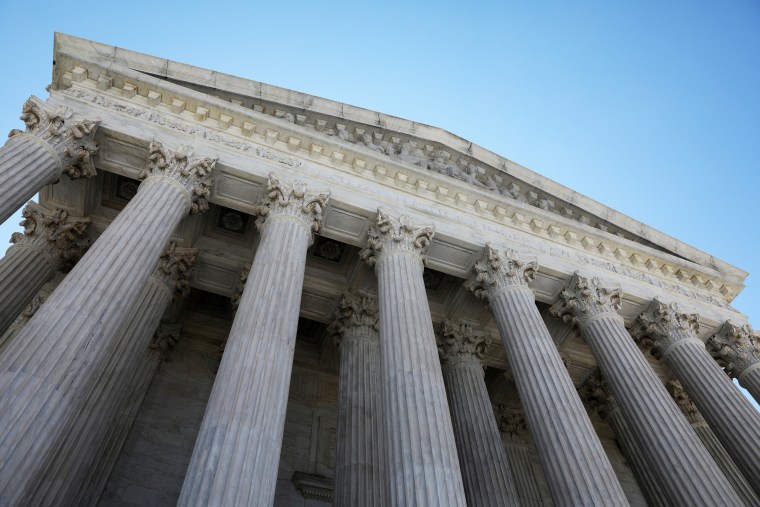Candidate Joe Biden seemed to struggle at times with questions about possible reforms to the federal judiciary. The Democratic nominee seemed to recognize the appetite for major changes within his party's base -- especially given the way in which Donald Trump's three justices were elevated to the high court -- but Biden also seemed reluctant to endorse a dramatic overhaul.
In time, faced with repeated questions about "court packing," he settled on a position to make the questions go away: in October 2020, Biden said he'd convene a commission to examine the federal judiciary and propose possible reforms.
This morning, as the New York Times reported, President Biden followed through on that commitment.
In his executive order on Friday, the president will create a 36-member commission charged with examining the history of the court, past changes to the process of nominating justices, and the potential consequences to altering the size of the nation's highest court. The panel will be led by Bob Bauer, who served as White House counsel for Mr. Obama, and Cristina Rodriguez, a Yale Law School professor who served as deputy assistant attorney general in the Office of Legal Counsel under Mr. Obama.
The commission, according to a White House statement, will "examine the genesis of the reform debate; the court's role in the Constitutional system; the length of service and turnover of justices on the court; the membership and size of the court; and the court's case selection, rules, and practices."
Reform proponents should probably keep their expectations in check. For one thing, the commission's review is scheduled to take six months. For another, even if the members of the panel were to endorse ambitious reforms, such an overhaul would have to be approved by Congress, where any major reform effort would face exceedingly long odds.
That said, the commission's existence is an unusual step: the idea of a White House even participating in such a conversation has no modern precedent.
The discussion has not gone unnoticed on the nation's highest bench. The Washington Post reported this week:
Justice Stephen G. Breyer said this week that advocates of expanding the Supreme Court to dilute the power of its conservative majority should "think long and hard" about the risk of making justices appear more political and eroding public confidence in the court.... In a speech at Harvard Law School on Tuesday, Breyer said that the court's authority depends on "a trust that the court is guided by legal principle, not politics." He added, "Structural alteration motivated by the perception of political influence can only feed that latter perception, further eroding that trust."
I can certainly appreciate a longtime justice's interest in protecting the institution's reputation, but if we're going to have a conversation about eroding public trust in the Supreme Court and "the perception of political influence," the problem is not the push from progressive activists.
Rather, the problem is that Senate Republicans stole a Supreme Court seat in 2016, then broke their word and confirmed a nominee eight days before Election Day 2020.
Ed Kilgore added yesterday, "If Justice Breyer wants to mitigate the damage to the judiciary's reputation, he would do well to make sure that 6-3 majority doesn't expand to 7-2 via his own failure to retire while there is a Democratic president and Senate to replace him."
Postscript: The full list of members on the new White House commission is worth reviewing, because the assembled panelists are extremely impressive. Note, none of the commissioners are members of the president's family, and there isn't an unqualified media personality included in the bunch.

